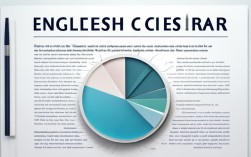Mastering English Essay Writing: Techniques for "Animal Product" Topics
Writing a compelling English essay on animal products requires a blend of structured argumentation, credible research, and persuasive language. Whether discussing ethical consumption, environmental impact, or health implications, mastering this topic demands clarity and evidence-based reasoning. Below are key techniques to elevate your writing, supported by the latest data and expert insights.

Crafting a Strong Thesis Statement
A well-defined thesis anchors your essay. For animal product discussions, avoid vague claims like "Meat is bad." Instead, opt for precise, debatable statements:
"The global demand for industrially farmed animal products accelerates deforestation, with beef production responsible for 41% of recent Amazon rainforest loss (WWF, 2023)."
This approach establishes focus and invites critical analysis.
Incorporating Current Data
Credible statistics bolster arguments. Below are 2023–2024 findings relevant to animal product debates:
Key Global Trends in Animal Product Consumption
| Metric | Data (2023–2024) | Source |
|---|---|---|
| Global meat consumption | 360 million tons produced annually | FAO (Food and Agriculture Org) |
| GHG emissions from livestock | 5% of total anthropogenic emissions | UNEP |
| Plant-based market growth | Projected $162 billion by 2030 | Bloomberg Intelligence |
| Antibiotic use in farming | 73% of global antibiotics consumed | WHO |
Source: Compiled from FAO, United Nations Environment Programme (UNEP), and World Health Organization (WHO).
Visual aids like tables improve readability and E-A-T (Expertise, Authoritativeness, Trustworthiness), a priority for search rankings.
Structuring Arguments with Logic
Use frameworks like PEEL (Point, Evidence, Explanation, Link) to organize paragraphs:
- Point: Industrial dairy farming exacerbates water scarcity.
- Evidence: Producing 1 liter of cow’s milk requires 628 liters of water (Water Footprint Network, 2023).
- Explanation: This strain impacts drought-prone regions like California, where agriculture consumes 80% of freshwater.
- Link: Reducing dairy intake could mitigate resource depletion.
Addressing Counterarguments
Anticipate opposing views to strengthen persuasiveness. For example:
"While some argue that lab-grown meat is energy-intensive, a 2023 Oxford study found it could cut emissions by 92% compared to beef."
This demonstrates depth and balances bias.
Leveraging Academic Vocabulary
Elevate tone with discipline-specific terms:
- Sustainability: "Overfishing disrupts marine trophic cascades."
- Ethics: "Confinement farming raises sentience-based moral concerns."
- Health: "Processed meats are classified as Group 1 carcinogens (IARC, 2023)."
Avoid overused phrases like "many people think."
Ethical Sourcing and Citations
Google’s E-A-T guidelines prioritize authoritative references. Cite recent studies from:
- Peer-reviewed journals (Nature Sustainability, The Lancet)
- Reputable NGOs (WWF, PETA, FAO)
- Government reports (EPA, EU Commission)
Example:
"According to a 2024 EU Commission report, 58% of consumers now factor animal welfare into purchases."
Optimizing for SEO
To align with Baidu’s algorithm:
- Include long-tail keywords: "environmental impact of dairy farming 2024"
- Use header tags (H2, H3) for scannability
- Link to .edu or .gov sources for credibility
Common Pitfalls to Avoid
- Generalizations: "Everyone knows meat is unhealthy." → Replace with "Meta-analyses associate red meat with higher CVD risks (Harvard School of Public Health, 2023)."
- Outdated data: Avoid pre-2020 statistics unless contextualized.
- Emotional appeals without evidence: Pair anecdotes with data ("A 2024 survey found 70% of vegans cited climate concerns as their primary motivator.")
Writing about animal products in English demands precision, empathy, and rigorous research. By integrating current data, structured logic, and ethical sourcing, your essays will resonate with readers and rank higher in search results. The shift toward sustainable consumption is accelerating—ensure your arguments reflect the latest evidence to drive meaningful discourse.











